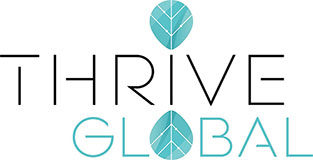
Now What? Now Wait
MichaelSunnarborg / July 21, 2020 Article, Image, Link / Leave a Comment
It’s July 2020 and who would have thought we’d still be in the middle of a global pandemic?
Maybe the scientists and epidemiologists did, but certainly not the rest of us. Especially us Americans.
While other parts of the planet are beginning to experience the other side of COVID-19, the U.S. didn’t quite get the message the first time. And now we’re paying the price. Big time.
Many U.S. states lifted restrictions too quickly so that they could “get back to normal”—but as we have seen, things are anything but normal. And now we’re in trouble again.
What’s our problem? Why can’t we wait?
Because we’ve conditioned ourselves to not practice patience. And we don’t want to go back.
We’ve taught ourselves that patience is no longer needed if we can get things instantly—like movies, music, pictures, videos, and so many other things online.
We’re living in an on-demand world, and demand we do. We want—and need—instant gratification.
We’ve talked ourselves out of waiting and into wanting. Wanting it now.
We’re even being groomed to believe we won’t need to wait for something as slow as the mail or UPS to deliver our new shoes in one week when we could potentially have them delivered by drone in one hour.
Are these all bad things? It depends on your perspective. Comme ci, comme ça.
So what’s wrong with waiting, anyway? Nothing. We’re just not accustomed to doing it very well anymore. And now we are perfectly poised to witness consequences of our choices: more illness and more COVID deaths.
All because we just can’t wait.
Uff da. It doesn’t get more poignant than that.
Remember the concept of delaying gratification? In his best-selling book, The Road Less Traveled, psychiatrist M. Scott Peck writes, “Delaying gratification is a process of scheduling the pain and pleasure of life in such a way as to enhance the pleasure by meeting and experiencing the pain first and getting it over with.”
In other words, we can deal with the pain first and the pleasure will be even sweeter—because we’ll feel that we’d “earned it” through our ability to practice patience.
If we could adopt Peck’s perspective and take his words to heart, we might learn to develop patience for the process and experience the truth that long-term benefits may, indeed, greatly outweigh short-term gains.
In the meantime, each of us gets to decide how to respond to what is happening around us.
Having problems with patience? Me, too. So here are a few suggestions to help us be willing while we wait:
Stop complaining. Some of us think we have it really bad—and some people really do—but most of us are just downright complaining. Why? Because we can. But that’s not a good enough reason to do it. Complaining supports resistance, and resistance just blocks creativity. Why not use this pandemic as an opportunity to create a new perspective and learn to work smarter, not harder? When we stop complaining, we start creating.
Start appreciating. You know all of those things (and people) we DO have? Well, they deserve to be recognized and appreciated. We’re fortunate to have so much already—family, friends, houses, jobs, cars, electronics, clothing—you get the point. It’s time to be thankful for what we’ve already got. The last thing we need is more stuff. Just ask Marie Kondo.
Chill out. It doesn’t sound very scientific, I know, but it’s not supposed to be complicated. If we can stop being so vocal about our disappointments and the inconveniences of social distancing, mask wearing, and limiting our in-person interactions, we can increase the capacity to enjoy the opportunities we do have and the people we can see. And chilling out leads to my next point…
Cheer up. Attitude is a choice. If there are things to be grumpy about, there are things to be grateful about. Just notice what you’re focusing on. If you’re feeling blue, focus on an uplifting thought; go for a walk; or connect with a friend. When the music playing in our head is a sad song, there are always ways to change the tune.
Find healthy distractions. Yes, distractions can be a good thing—especially when they help slow the momentum of chronic negative thoughts (or stinkin’ thinkin’). By paying attention to what we’re paying attention to, we heighten our awareness and activate our power to choose our focus, which determines our direction. Where our attention goes, our energy flows. Which direction are you facing?
Hang in there. Some days will be more challenging than others. But if we remember that we have the ability to choose our perspective, we can learn to practice patience; shift our focus to what’s working well; and believe that these challenges are, indeed, making us stronger. We just need to learn how to wait for it.
So, now what? Now wait.
Michael Thomas Sunnarborg is a life transition coach, best-selling author, and founder of The White Box Club™ — live coaching and resources for people in career transition. Find his syndicated blogs on Thrive Global, Medium, and The Huffington Post. Learn more at connect.michaelcreative.com
Photo by Andrea Piacquadio from Pexels




These times are truly challenging. Whether it is looking for a job, managing working from home while taking of kids, worrying about aging parents, how to pay bills – the list goes on…Each of us needs to find/discover a healthy way to deal with how things are and Michael touches on some ways.
I’d like to offer up an online course that I took several years ago and it helped me better understand what is “wellbeing?” Yale University freshmen are taking this and so can you: The Science of Well-Being through Coursera. Instant gratification is covered.
Looking for a way to help you cope? Check it out – you just might like it!
That’s wonderful, Amy! Thank you for providing this valuable resource.